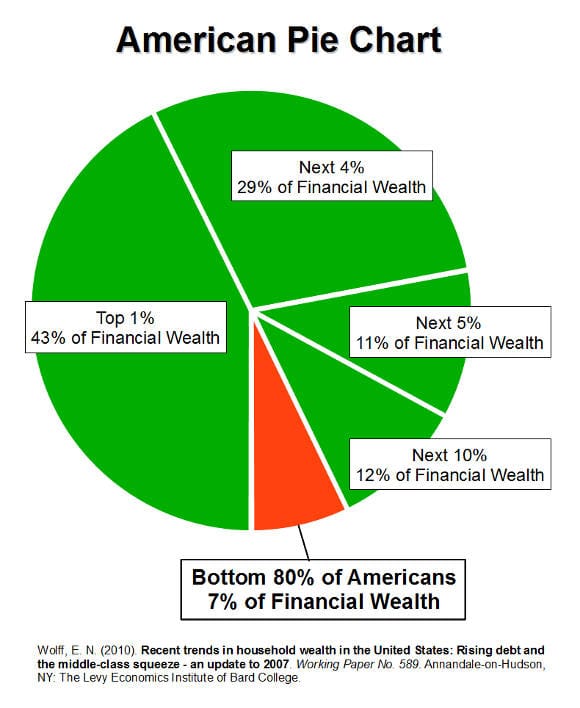Will Continued Economic Inequality Bring Out The Pitchforks?

“Socialism never took root in America because the poor see themselves not as an exploited proletariat but as temporarily embarrassed millionaires.” -- John Steinbeck
Self-professed "zillionaire" Nick Hanauer thinks pitchforks are looming in a recent op-ed piece in Politico Magazine. This isn't the only recent gloomy outlook on the economy and perhaps it should really give us a moment of pause to think about whether there could be the reality of pitchforks of economic upheaval in the near-future.
This is a highly politically charged subject -- the subject of inequality in the distribution of wealth. The facts do not make a good report. According to Forbes, the 85 richest people own more wealth than the bottom half of the world's population. The top one percent own 65 times the wealth of the bottom half.
This is an argument that has been unfolding since the 1980s when the income/wealth gap started to make a strong resurgence after dropping or staying level for over 60 years.Strangely enough, some of the deepest cuts in welfare since the "Great Society" took place during the same period. The 1982 federal budget cut most "safety-net" programs by as much as
"Voo-doo Economics" was popularized, proclaiming that wealth would "trickle down" to the very lowest members of the economy if we would just trust the free market system.
But there wasn't social upheaval -- or even much of a public debate. Former President Bill Clinton (D) continued the paring of the welfare system, even as the gap between the richest and poorest continued to grow. Still firmly in place in the political mindset was that an expanding "pie" helped everyone.
The facts plainly show, after 30+ years, that this has simply not happened. The "pie" has shrunk to the point where the bottom 80 percent of the population are fighting over less than 7 percent of the total wealth in the United States.

A larger portion of the population is becoming more vocal, but there is still a significant portion that absolutely refuses to believe there is anything abnormal about any of this.
This is an interesting phenomenon in logical thought -- one that hasn't had a lot of usage since the beginning of the Age of Reason.
This is an example of the invincible ignorance fallacy. Plainly stated, this occurs when a person outright refuses to acknowledge or accept any evidence, regardless of the source, that is contrary to their internalized beliefs. Often times, they refuse to even accept that there is an actual legitimate argument to be discussed.
But this is a form of mass delusion that has continued for over 30 years -- with no apparent end in sight. While the current form of this dilemma started under a Republican president, this is no longer a theoretical political problem, but a real threat to democracy itself. As Justice Louis Brandeis (1856-1941) pointed out:
We must make our choice. We may have democracy, or we may have wealth concentrated in the hands of a few, but we can't have both.
The pitchforks might come out either way, but I'm not entirely sure what would happen if the so-called "middle class defenders" of wealth inequity ever snapped out of it.
Photo Source: AP



